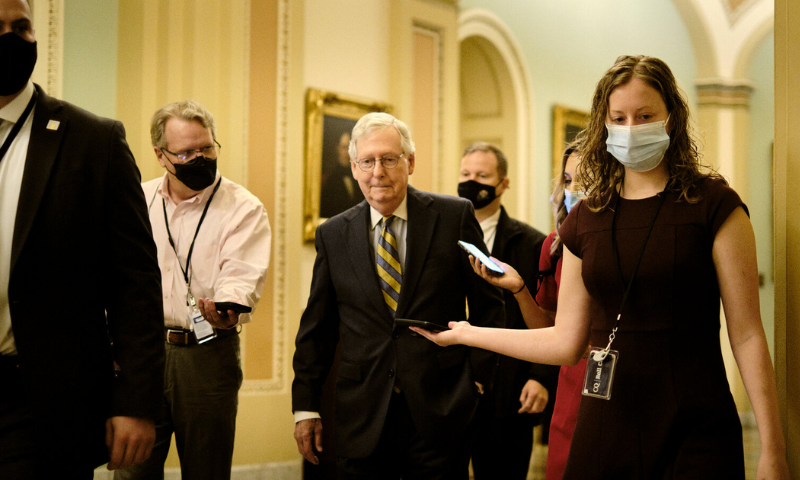WASHINGTON: US senators are in a race against time to pass a unanimous debt limit deal, which received overwhelming approval in the House of Representatives, thus averting the worst-case scenario of a potentially devastating default on the economy.
The Treasury had issued warnings that it could exhaust its funds to pay bills by Monday, leaving little room for delays in enacting the Fiscal Responsibility Act. The bill, which suspends the debt limit through 2024 while reducing federal spending, passed the House with a significant majority of 314 votes to 117, making its way to President Joe Biden’s desk for his signature.
Democratic Majority Leader Chuck Schumer affirmed that the Senate would remain in session until the bill reaches President Biden’s desk, emphasizing the urgency to prevent a default. However, a debate ensued with several senators seeking amendments, potentially prolonging the process and extending it into the weekend. Unanimous agreement among the Senate is necessary to fast-track the legislation, and any individual senator can significantly delay bill consideration.
US Senators Discuss Debt Deal
While some senators expressed a desire to propose modifications to the debt deal, most indicated that they did not intend to impede the process as long as voting was allowed for their proposed amendments.
Defense hawks, displeased with the Pentagon’s spending being capped at Biden’s budget request of $886 billion, called for a commitment to a separate bill later in the year to support Ukraine’s defense against the Russian invasion led by Vladimir Putin.
Schumer, Republican counterpart Mitch McConnell, and their representatives spent much of Thursday attempting to reach an agreement on voting timing and procedural rules. McConnell expressed hope that senators with amendments would yield back time after voting, allowing for the bill’s completion by Thursday or Friday to alleviate concerns in the country and the markets. Schumer indicated a willingness to consider some amendment debates but would likely require a 60-vote threshold for adoption, making success unlikely.
House Minority Leader Kevin McCarthy hailed the House vote as a conservative triumph, though he fell one vote short of the 150 promised from his caucus, which would have quelled a right-wing rebellion threatening his leadership. The vote was considered a significant victory for President Biden, as it safeguarded most of his domestic priorities from severe cuts proposed by Republicans.
























